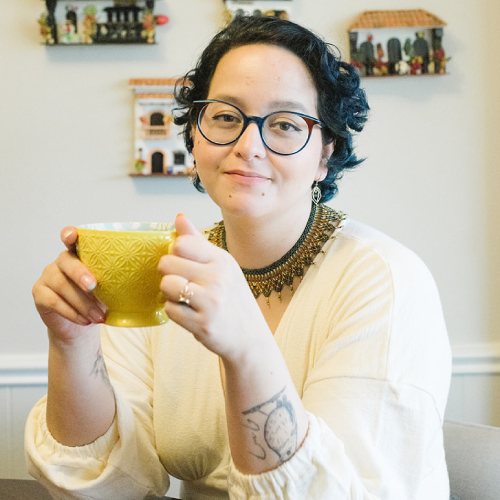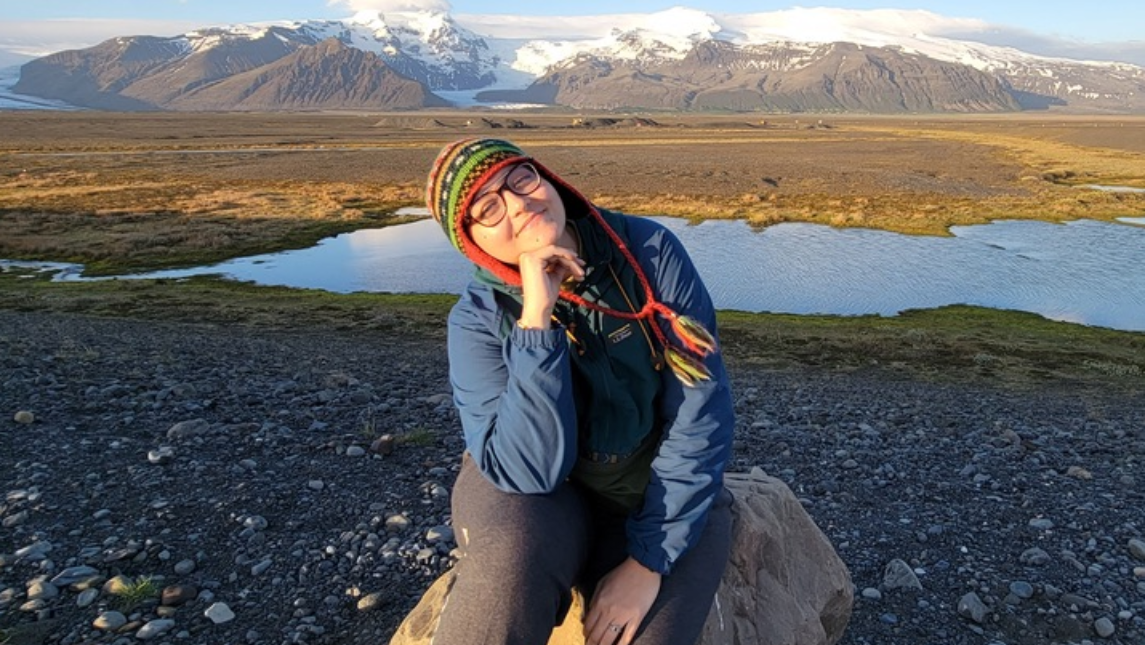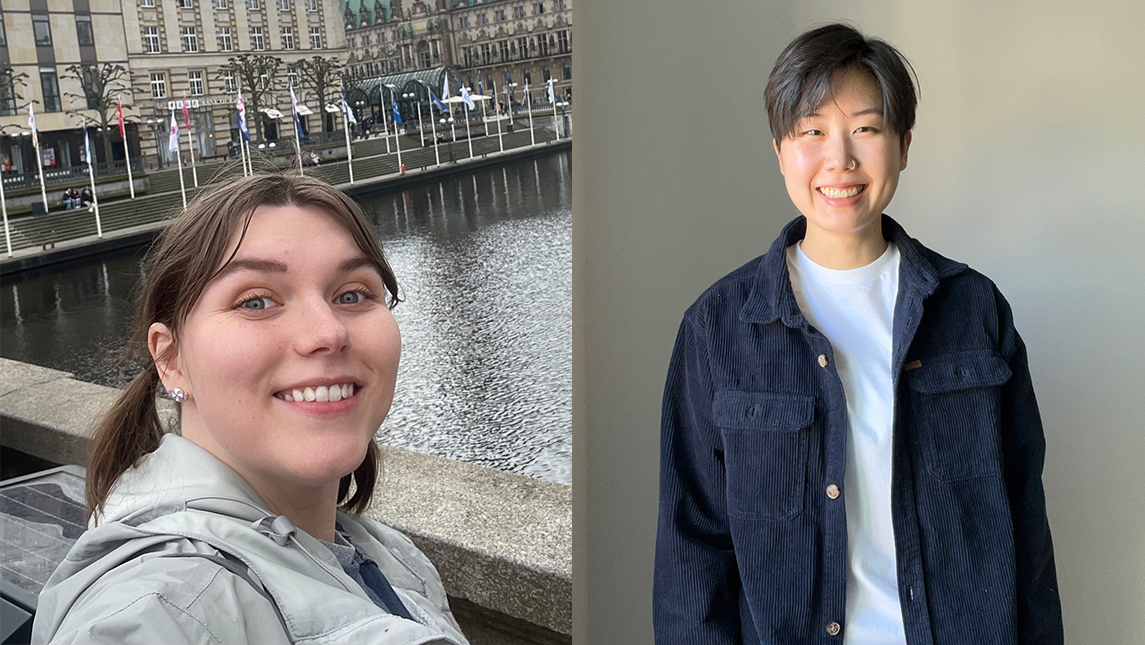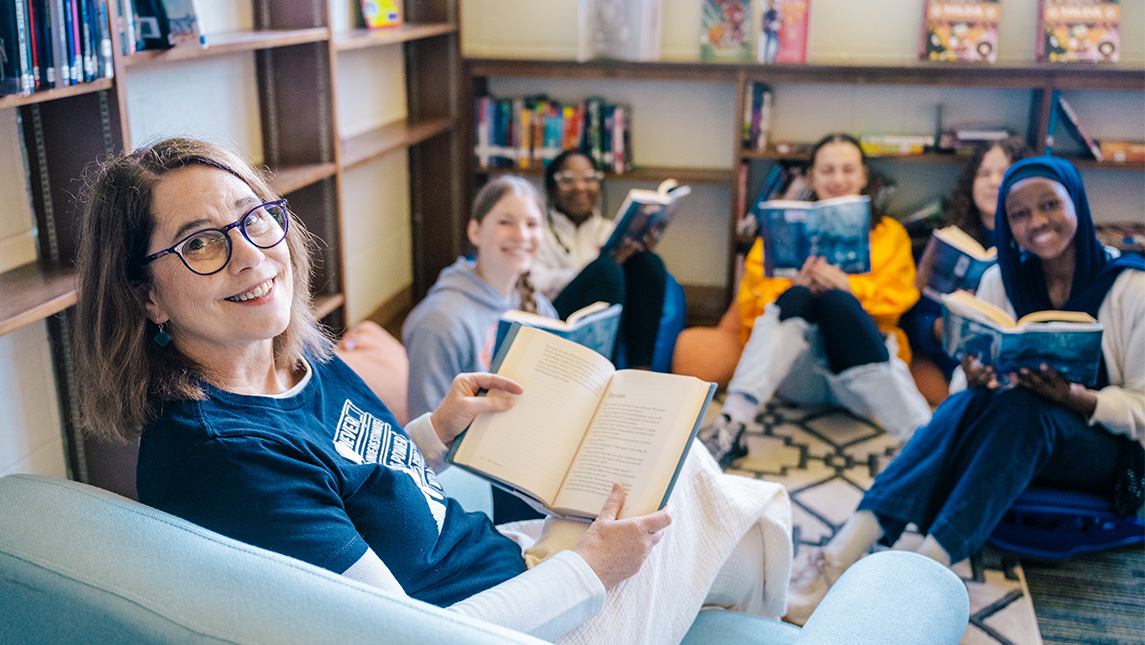While pursuing her doctorate as a student in the Department of Counseling and Educational Development (CED) in the UNC Greensboro School of Education, Melissa Carmona continues to work as a clinical mental health counselor in her practice, Cafecito Counseling. She specializes in trauma and eating disorders, but has worked with numerous people in need of evaluations for immigration services.
Carmona, who herself immigrated to the United States from Colombia as a teenager, understands the stress and potential trauma that uprooting your life to move to another country can create, especially if you enter the United States as an undocumented immigrant.
Helping those who come to the United States in search of a better life find their way to legal immigration status is personal for Carmona. Her father was deported when she was young, leading to a family separation. For years he tried to find a legal path to return, expending not only untold amounts of money, but time and emotional and psychological energy, but was unsuccessful. Following his death in 2020, Carmona found decades’ worth of boxes and folders with numerous applications and receipts of his attempts to return.
She says, “By the time many of the clients come to see me for an immigration evaluation or for counseling, this is the first time they are talking about their journey to the U.S., sharing their extensive traumatic experiences pre and post-immigration, and for many, this is the first time they get to speak out loud without fear about their documentation status. A truly cathartic experience for many. To say their name out loud and feel truly seen or heard.

“Many of my clients come into the office having already experienced the trauma of what it is like to have to ‘prove’ themselves worthy of belonging in this country. Many of my clients have also endured the trauma of living in fear of being detained, being separated from their loved ones, or of falling victim to stereotypes rooted in racism and xenophobia.”
As a recipient of the American Psychological Association’s (APA) Interdisciplinary Minority Fellowship, Carmona will be able to provide some immigration evaluation services on a probono or sliding scale option for her clients. The fellowship provides up to $23,000 for a year and could potentially be extended for a second year. The IMFP Fellowship is awarded through a federal grant to APA from the Substance Abuse and Mental Health Services Administration, Department of Health and Human Services. Carmona will also have access to training, professional development, and mentoring opportunities.
Carmona says, “The fellow position will contribute to multiple parts of my life. As a lifelong learner, it will grant me access to trainings and diverse academic settings. As a researcher and educator, I hope to center the stories of BIPOC communities that often experience erasure in literature (such as undocumented Latines); it is crucial for practitioners and counselors in training to gain a critical lens and cultural humility as they go on to practice in healthcare settings and marginalized populations that are already experiencing systemic oppression. Lastly, the IMFP is amplifying my voice as I speak about topics close to home for me and my loved ones. I hope that future generations will continue to engage in nuanced conversations and remember that their lived experiences hold as much valuable knowledge as formal academic spaces.”
Carmona wants to expand upon research being done in regard to eating disorders in the Latine community. One of the goals she has with the fellowship is to be able to compensate those who participate in her research efforts, saying, “It is an honor and privilege to connect, interview, and learn from Latines in the U.S. I want to respect their time and honor their shared knowledge.”
These opportunities are only enhanced by her experiences at UNCG. Carmona earned both her bachelor’s and master’s degrees from UNCG before deciding to work towards her doctorate.
She says, “When I was a master’s student in the program back in 2015, I had the opportunity to witness the extensive training in counselor education, research, and supervision the doctoral students were experiencing. The nature of the program is very hands-on. You get to apply theoretical knowledge from the very beginning of the program with the support of your peers, mentors, professors, and advisors. CED educators are experienced and knowledgeable, and they are genuinely caring, curious, and supportive.

“I am a parent, a caregiver, and a counselor. I knew from the beginning that CED would support me in my journey to getting to know my scholar educator, while also honoring my needs and the needs of my family.”
Carmona urges current and potential students to explore everything that the department offers, from the undergraduate classes to the experiential learning opportunities in the Nicholas A. Vacc Clinic. She extolls the growing diversity of the department and the community feel that is developed within her cohort as well as with the faculty members and master’s students. She adds, “There is space for laughter; there is space for hard conversations; there is space for grief. All parts of me have been welcomed, encouraged, and held with great love and openness.”
Finally, Carmona concludes with a personal message to other students, “Shout out to my BIPOC, neurodivergent, and gender non-conforming folks. As a queer Latine individual and daughter of immigrants, I have struggled to make space for myself or believe I belong in certain spaces. Here is my reminder for you: ‘Take up space. The fear and self-doubt will always be there. Do it scared. Make space. Your voice matters.’”



